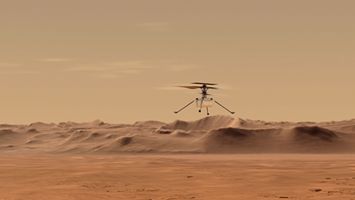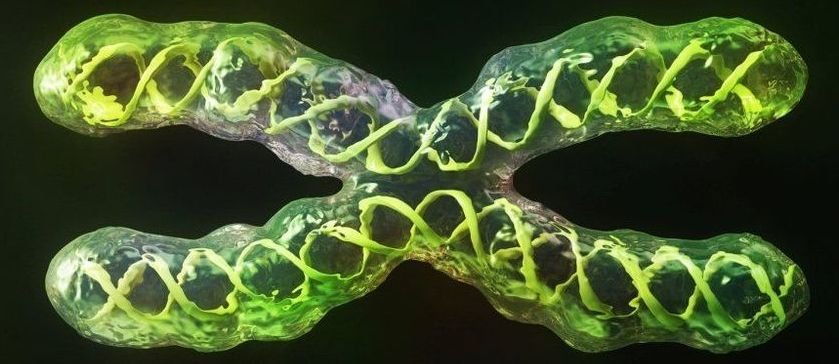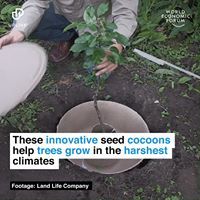It turns out the moon is a little younger than scientists previously thought — about 85 million years younger, to be precise.
The PLA Navy may be poised to overcome a technological and tactical defect that has plagued it since its founding.
By James Holmes
Here’s What You Need To Remember: American submariners long lampooned Soviet and Chinese nuclear boats for being noisy and easy to detect. PLA Navy boats remained backward long after the Cold War. Ultraquiet propulsion, though, would put an end to unquestioned U.S. acoustic supremacy, opening up new operational and strategic vistas before the PLA Navy while ushering in a deadlier phase of U.S.-China strategic competition.
When NASA’s Perseverance Mars Rover launches to the Red Planet, an innovative experiment will ride along: the Ingenuity Mars Helicopter — the first aircraft to attempt controlled flight on another planet.
Get up to speed with these key facts about its plans: https://www.nasa.gov/feature/jpl/6-things-to-know-about-nasa…helicopter #CountdownToMars
An existing medicine can “downgrade” the danger-level of coronavirus to that of a common cold, a Jerusalem researcher is claiming, after testing it on infected human tissue.
Prof. Yaakov Nahmias says that his research shows that the novel coronavirus is so vicious because it causes lipids to be deposited in the lungs, and that there is a solution to undo the damage: a widely-used anti cholesterol drug called fenofibrate.
Hebrew University professor says he’s worked out what makes the raging virus so vicious, and how to fix it using an anti-cholesterol med; no human testing done yet.
In 2003, history was made. For the first time, the human genome was sequenced. Since then, technological improvements have enabled tweaks, adjustments, and additions, making the human genome the most accurate and complete vertebrate genome ever sequenced.
Nevertheless, some gaps remain — including human chromosomes. We have a pretty good grasp of them in general, but there are still some gaps in the sequences. Now, for the first time, geneticists have closed some of those gaps, giving us the first complete, gap-free, end-to-end (or telomere-to-telomere) sequence of a human X chromosome.
The accomplishment was enabled by a new technique called nanopore sequencing, which enables ultra-long-reads of DNA strands, providing a more complete and sequential assembly.
Microsoft is urging system administrators to urgently install updates to fix a 17-year-old Windows DNS Server vulnerability. Microsoft has rated the flaw at the highest level for remote code execution, but exploits haven’t yet been developed.
DARPA: Hack Our Hardware
Posted in cybercrime/malcode
DARPA is running a bug bounty aimed at further hardening new malware-proof architectures.
Land Life Company ❤
Boosting seedling survival rates from 10% to at least 90%.
For more on the Trillion Trees Challenge, visit UpLink: https://buff.ly/2O5nd3j
Ivanka Trump, a woman with a lifetime career guarantee and a net worth equalling the GDP of a small African country, has a plan for the millions of unemployed workers, many of whom lost their jobs during the pandemic: “Find Something New.” The initiative, in partnership with the nonprofit Ad Council, Tim Cook, and IBM executive chairman Ginni Rometty, sounds like the familiar Obama-era “learn to code” trope and not exactly on-brand with the Make American Great Again promise of told Ivanka to take her own advice.
In this premier episode of Lifespan News, Brent Nally discusses Unity Biotechnology’s human trials of novel senolytic drugs, including a Phase 2 human trial of a senolytic drug for knee osteoarthritis; two proteins that allow LDL cholesterol to enter our cells; Ponce de Leon Health and epigenetic age reversal; the reason why naked mole rats are so resistant to cancer; XPrize adding longevity to its impact roadmaps; and a promo code for Ending Age-Related Diseases 2020, our upcoming online conference.
You can get your ticket to EARD2020 at https://www.eventbrite.com/e/ending-age-related-diseases-202…4918805703
0:00 Introduction
0:51 Unity Biotechnology Updates
1:43 Proteins & LDL: https://www.lifespan.io/news/two-proteins-allow-ldl-cholesterol-into-our-cells/
2:17 Epigenetic Age Reversal: https://www.lifespan.io/news/pilot-study-results-suggest-epi…-reversal/
3:18 Naked Mole Rat
4:11 XPrize and Longevity: https://www.xprize.org/articles/future-of-longevity-blog-post
4:50 Additional Information and Outro
HOW CAN YOU SUPPORT US?
▀▀▀▀▀▀▀▀▀▀▀▀▀▀▀▀▀▀▀▀▀▀▀▀▀▀
LEAF / Lifespan.io is a 501©(3) nonprofit organization. Everything we’ve done thus far and everything we will do in the future is thanks to your support — please stand with us to fight the diseases of aging and increase healthy human lifespan.
► Support us with monthly donations by becoming a Lifespan Hero: https://www.lifespan.io/hero
► Make a one-time donation and learn about other ways to support us here: http://lifespan.io/support
► Learn more, and help us #CrowdsourceTheCure: https://www.lifespan.io
► Subscribe: https://www.youtube.com/user/LifespanIO
#LifespanNews #LifespanIO #Unity #XPrize #Senolytics









